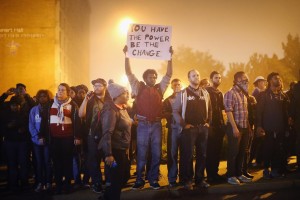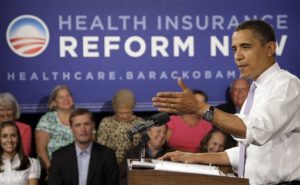
The release of the National Urban League’s State of Black America report marks yet another quantification of the lack of progress in the Black community. It’s another summary filled with numbers and statistics that remind us that decades after Selma, progress has been more of a perception than a reality.
It reminds us that the political obsession is with the Black vote, not Black progress.
It presents yet another reason why the Black community’s wait for the super president or a fairy god-Congress must come to an immediate halt.
In terms of both the presidential seat and the congressional majority, the nation has seen phases of both Republican and Democratic power.
The nation has not, however, seen great strides for the Black community.
“So, what is the state of Black America in 2015,” the president and CEO of the National Urban League, Marc Morial, wrote in the report. “In short, on many fronts, Black America remains in crisis — and we see justice challenged at every turn.”
The report gives numerical data to support what the Black community has known all along. When it comes to education, economics, unemployment and overall equality, the Black community is lagging far behind its white counterpart, despite what seems to be rapidly spreading faux perceptions of magnificent progress via pop stars and historical elections.
The “news” could be another piece of evidence that leaves Black communities feeling discouraged and frustrated.
Or it could fire the starting gun for the Black Lives Matter movement to advance to its next phase.
As Obama nears the end of his time in office, citizens of all colors have questioned his contributions to the country and his own community.
It’s an unfair analysis of his time in the White House, but a reminder that the president only wears the name tag of the most powerful man in the nation.
“The efforts to deal with the unemployment problem in urban communities have been absolutely blocked by conservative interests in the United States’ Congress,” Morial explained. “They blocked the president’s American Jobs Act. They blocked increases in the minimum wage. They passed no meaningful economic legislation, and they’re not willing to take up any meaningful economic legislation.”
Morial believes that the passing of certain acts and other legislation could have slashed unemployment rates in the Black community.
He fairly noted that the president has certainly missed some major opportunities to make a difference, if even only on a social level, but emphasized a “cycle of blocking” legislation proposed by the president.
It’s a trend that’s not exclusive to Obama’s time in office either.

With the report showing insignificant progress in economics and a decline in educational equality, it is clear that the Black community has no more time to waste on political figures who can’t seem to agree on anything except an environmentally hazardous pipeline and hacking away at the protections provided by the Voting Rights Act.
So what can the Black community do to spark change while elected officials prove just how inefficient the government can be?
Black businesses and local leaders can take it upon themselves to launch positive initiatives that get children in low-income communities off the streets, create a much-needed emphasis on education, introduce Black youth to STEM subjects and provide them with meaningful mentors.
Such initiatives can help give children quality education even when their schools are underfunded and mold today’s Black youths into the business leaders of tomorrow.
Black consumers can use their more than $1 trillion in spending power to hold corporations accountable and support policies that better the Black community.
Black business leaders and entrepreneurs can focus on creating more jobs for their peers, and those with greater amounts of disposable income can come together with their local communities to raise the funds necessary to provide their public schools with better resources.
Parents can launch open and honest discussions with their children about racism, educating them about the past and emphasizing the possibilities of the future.
The Black youth, growing up in an era of rapidly increasing diversity, can bring their white friends into serious conversations about race that could potentially lead to more white leaders in the future who are joining forces with the Black community to support the ideology that nobody should have a lower quality of life based solely on their skin complexion.
These types of solutions are no mystical remedy and the effects of such efforts will not immediately be seen on a global stage.
In the long run, however, the Black community could breed a competent and powerful generation of future leaders, activists and entrepreneurs.
In the short term, these programs could provide a positive outlook for the communities they impact and spark a wave of similar efforts in communities all across the country.
Again, this will be no miracle solution. It will not be the final bullet needed to assure death to white supremacy.
What it will be is a lot better than waiting on politicians to play nice long enough to realize that the so-called post-racial America that’s supposed to be the global supermarket for opportunity is leaving Black communities oppressed, disadvantaged and bankrupt and accept the fact that it is indeed their duty to do something about it.


